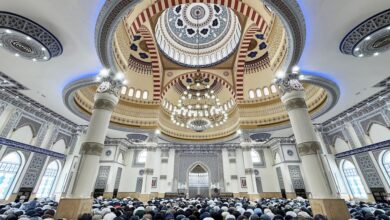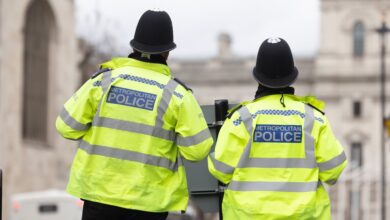Surveilled, harassed by Israel – life as a West Bank Palestinian
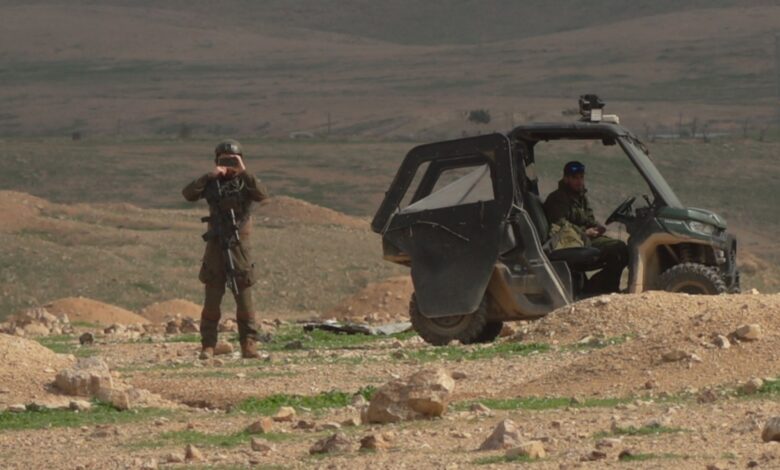
Occupied West Bank – “The Israeli army is here. They’re coming up the road!” our Palestinian driver Mohammad shouts, alarmed, as we near the location of a recent settler attack in the village of al-Sawiya.
The message is passed to him by anxious villagers congregating in the street. This is my first time working with Mohammad, who is on edge and seems uneasy. In our short time together, he has already recounted numerous traumatic experiences at the hands of the Israeli military.
We get out of the car. I’m concerned the army may stop us filming the damage from the attack, so I need to move quickly.
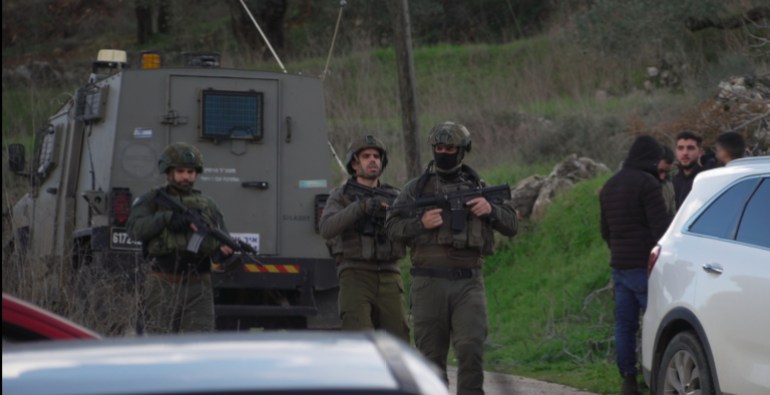
It has been raining on and off for days, and white fog hangs over the streets and hills, dispersing slowly and only adding to the sense of tension.
Last night, Israelis from a nearby illegal settlement had doused a car in petrol and set it alight. According to witnesses, they had planned to set fire to the adjacent house as the families slept inside but they were spotted and chased away, having damaged only the car.
Two military jeeps and an armoured police vehicle pull up, and soldiers are disgorged, instantly demanding that I not record them. Rather than trying to gather evidence from the crime, they seem intent on displaying a show of force, discouraging any dissent from the villagers.
According to locals, not only has settler violence increased in the occupied West Bank since Hamas’s October 7 attacks in southern Israel, but settlers also seem to have the support of the Israeli military.
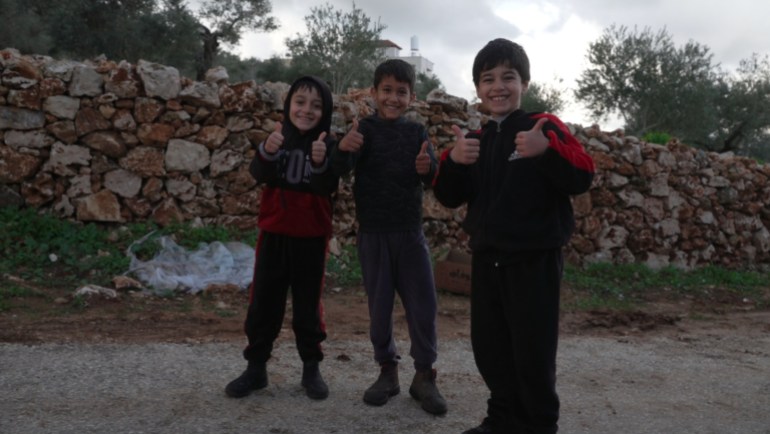
Children, excited by all the commotion, wave, smile and give my camera the thumbs-up, “Hello. How are you, habibi?” they ask. The men are far graver, and the women remain indoors, glimpsed only occasionally at the windows.
Armed and potentially dangerous settlers
The day before, we had visited a Palestinian Bedouin community in Maarajat in the mountains outside Jericho. The landscape, barren for most of the year, is now flush with green. The Bedouins living at the foot of a smooth hill have gradually found themselves surrounded by illegal Israeli settlements and outposts.
During filming, the Bedouins pointed to the horizon. They had spotted two settlers in a small off-road vehicle. I was surprised to see that they were dressed exactly like Israeli soldiers and carried M16 rifles. Our Bedouin hosts, visibly concerned, sheltered behind a nearby sheep pen while I continued to film, and we debated if we should approach these armed and potentially dangerous men.
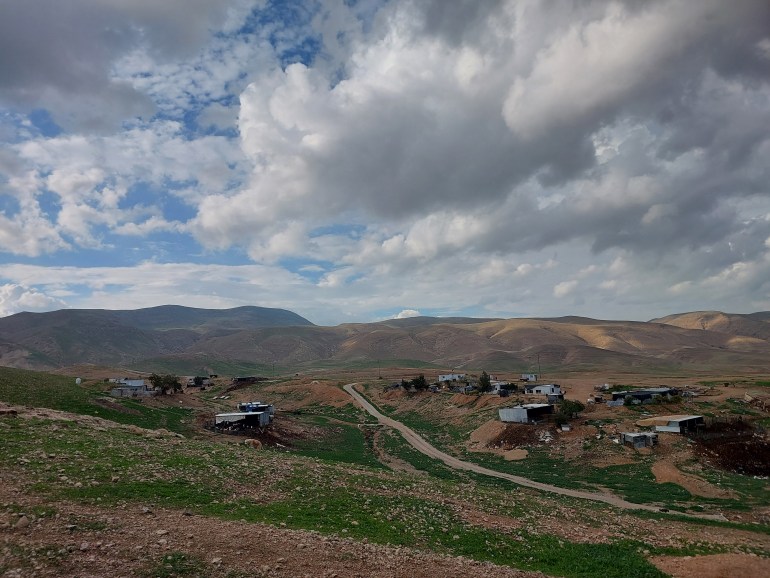
Suleiman Atallah Mlaihat, the Bedouin leader, showed us footage he and his family have taken of daily settler attacks on their community and livestock. In the face of mounting intimidation and violence, Suleiman, along with two friends, decided to report the crimes to the police.
Because the Palestinian police have no authority to enforce justice on Israeli settlers, Suleiman had to approach the Israeli police. The police station is situated within the confines of another, larger settlement about a 20-minute drive away.
Immediately upon arriving at the settlement, we saw the prejudice Sulieman and his community face at the hands of the Israelis. The guards at the entrance shouted frantically, extremely agitated. One guard told Sulieman not to come any closer because she was afraid for her safety.
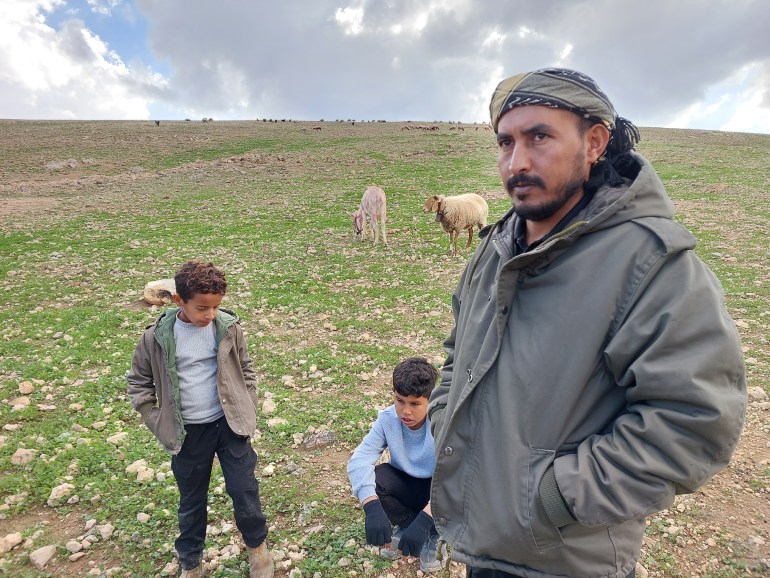
She was wearing body armour, a helmet and is armed with an M16 assault rifle. Suleiman is dressed in a T-shirt, jeans and trainers.
Calls were made, and after about an hour, a police escort arrived to take the three Bedouins inside the settlement to the police station despite protests from the guards.
We learn later that it took nine hours for Suleiman to relay his experiences to the police, and the daily attacks by settlers on his community have not stopped since.
The Bedouins, like other Palestinians in the occupied West Bank, continue to live in stress and fear of settler attacks.
